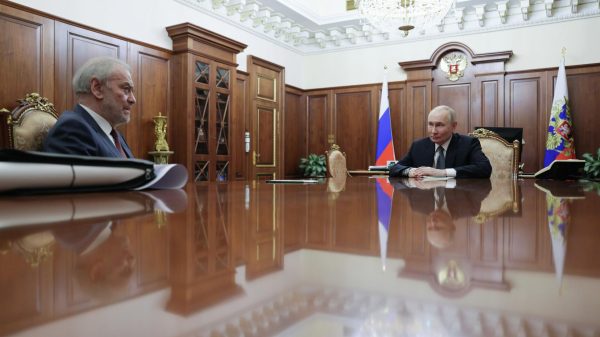Amazon’s UK sales soared by 51% last year to a record $26.5bn (£19.4bn) as people trapped at home due to the coronavirus pandemic lockdowns turned to the internet retailing giant to buy items unavailable in closed high street stores and to keep them entertained.
While Amazon celebrated the rise in revenue collected from UK customers, the company did not state how much tax it paid in the UK last year. The company, which has made its founder and outgoing chief executive Jeff Bezos a $200bn fortune, paid just £293m in tax in 2019 despite the company collecting UK sales of $17.5bn that year.
Details of the leap in Amazon’s sales in the UK were contained in a filing with the Securities and Exchange Commission in the US after the tech company unveiled its latest global financial results on Wednesday night. They revealed that Amazon’s global revenue soared past $100bn in the most recent three months. Bezos also announced he was stepping down from the day-to-day running of the comany and handing the reins to one of his key lieutenants, Andy Jassy.
The £19.5bn that UK customers spent at Amazon in 2020 is roughly double the takings at Marks & Spencer, the 137-year-old retailer, and underlines how the Covid-19 pandemic is revolutionising the way we shop and threatening the future of the high street.
Paul Monaghan, chief executive of Fair Tax Mark, said it was very unlikely that the 50% jump in Amazon’s UK sales would lead to any sizeable increase in UK tax paid because “a good proportion of [Amazon’s UK sales] will be booked in Luxembourg, where they engineered a near €1bn (£880m) loss last year”.
He said the result of this financial engineering would lead to Amazon “racking up hundreds of millions of tax credits that will be used in the future to offset future profits that might have otherwise generated tax contributions”.
Last year, it emerged that Amazon received €294m in tax credits across Europe in 2019.
Margaret Hodge, a Labour MP who has long campaigned against tax avoidance, said Amazon used “complex corporate structures designed solely for the purpose of avoiding tax” and said it was “about time Amazon buck up its ideas and starts contributing fairly”.
‘These figures demonstrate how Amazon has benefited massively under the pandemic as consumers have switched to shopping online,” Hodge said. “All the while the UK’s well-loved shops and high streets are seriously struggling.
“The government must urgently figure out how we can properly tax Amazon and the other tech giants.”
Tax transparency campaigners have accused Amazon of “aggressively avoiding” tens of billions of tax due to governments across the world by shifting its profits through low tax jurisdictions, such as Luxembourg.
Monaghan said Amazon’s annual results indicate that the company has “tax avoidance baked into its business model”.
“Their tax contribution continues to be miserly once you analyse the cash payments that are actually handed over to government,” Monaghan said. “In 2020, their corporation tax contribution across the world was just 7%, which is down even on the 11% they paid through the preceding decade.”
Amazon is not alone in creating complex corporate structures to avoid tax. The big six US tech firms – Amazon, Facebook, Google, Netflix, Apple and Microsoft – have been accused of avoiding $100bn (£75bn) of global tax over the past decade.
The UK government has tried to clamp down on multinational tech companies avoiding tax by the creation of a 2% digital services tax, but Amazon will not have to pay the tax on products it sells directly to consumers. The company has already stated that the 2% tax on revenues made in the UK will be passed on to sellers.
After a public and political outcry over its failure pay the appropriate amount of tax, Amazon said in 2015 it would stop using corporate structures that diverted sales and profits away from the UK.
A spokesperson for Amazon said: “We are investing heavily in creating jobs and infrastructure across the UK – more than £23bn since 2010. The UK has now become one of Amazon’s largest global hubs for talent and last year we announced plans to create 10,000 new jobs in the country by the end of 2020, taking our total workforce to over 40,000.
“This continued investment helped contribute to a total tax contribution of £1.1 billion during 2019 – £293m in direct taxes and £854m in indirect taxes.”



















































Свежие комментарии